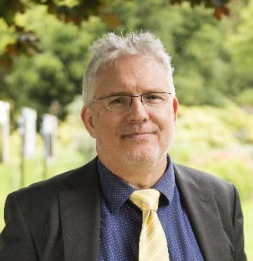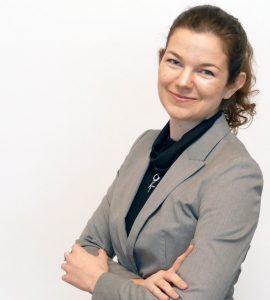Franziska Ehrke, University Koblenz-Landau Department of Social, Environmental and Economic Psychology, will give a presentation via Zoom in this week’s Social, Economic, and Decision Psychology research seminar (Thursday 8 April).
Vicarious contact in media interventions: The role of ingroup perspective taking and outgroup empathy

Social and entertainment media provide the opportunity for indirect contact and have become an important tool for minorities to share tolerance-promoting messages via the internet. Thus, they could be powerful tools in reducing intergroup conflict and promoting tolerance towards diversity and marginalized groups. Despite being popular, wide-spread, and easily accessible for a diverse audience, there is a lack of research evaluating if and how vicarious contact succeeds. Therefore, this research evaluated the effectiveness of a YouTube campaign video that used vicarious contact to improve attitudes towards gay men. Extending previous research that demonstrated the positive impact of perspective-taking and empathy with outgroups, this research examined the mediating role of perspective-taking and empathy with both the outgroup as well as the ingroup protagonists in the video for improving outgroup attitudes with media interventions.
The pre-registered hypotheses were tested with heterosexual adult participants in two well-powered experiments: Experiment 1 used a German sample (N = 274, 53% employees, 24% students, 55% women, Age: M = 42, SD = 16) and Experiment 2 an Italian sample (N = 330, 27% employees, 41% students, 65% women, Age: M = 33, SD = 13). In both experiments, participants were randomly allocated to a control-group design (campaign vs. control video). Whereas the campaign video presents a gay couple asking by-passers to translate an email that confronted them with anti-gay discrimination, in the control condition the same video was presented muted with alternative subtitles about two brothers facing corruption.
As pre-registered, in Experiment 1 the campaign video improved heterosexuals’ explicit and implicit attitudes (IAT) towards gay men. Explorative analyses revealed that increased perspective-taking with the ingroup protagonists mediated increased empathy with the gay outgroup protagonists, and both ingroup perspective-taking and outgroup empathy sequentially mediated more positive outgroup attitudes. This serial indirect effect was then pre-registered for Experiment 2 which used a repeated-measures design. As pre-registered, repeated-measurement ANOVAs showed that watching the campaign video improved explicit outgroup attitudes. Path analyses replicated the pre-registered serial indirect effect on explicit outgroup attitudes found in Experiment 1. Nevertheless, there was no total effect of the video on explicit post-measure outgroup attitudes. This is consistent with the finding from the repeated-measures ANOVA that there was no significant difference between the experimental and the control group in post-measures of outgroup attitudes.
As previous research showed that contact as an intervention was most effective for people with less contact with sexual minorities, future research should test the effects targeting participants with little to no pre-existing contact. Additionally, future research should go beyond measuring empathy with the protagonists in the video and test whether the video also increases empathy with the outgroup in general.
Supporting literature:
Batson, C. D., & Ahmad, N. Y. (2009). Using empathy to improve intergroup attitudes and relations. Social Issues and Policy Review, 3(1), 141–177. doi: 10.1111/j.1751-2409.2009.01013.x





























